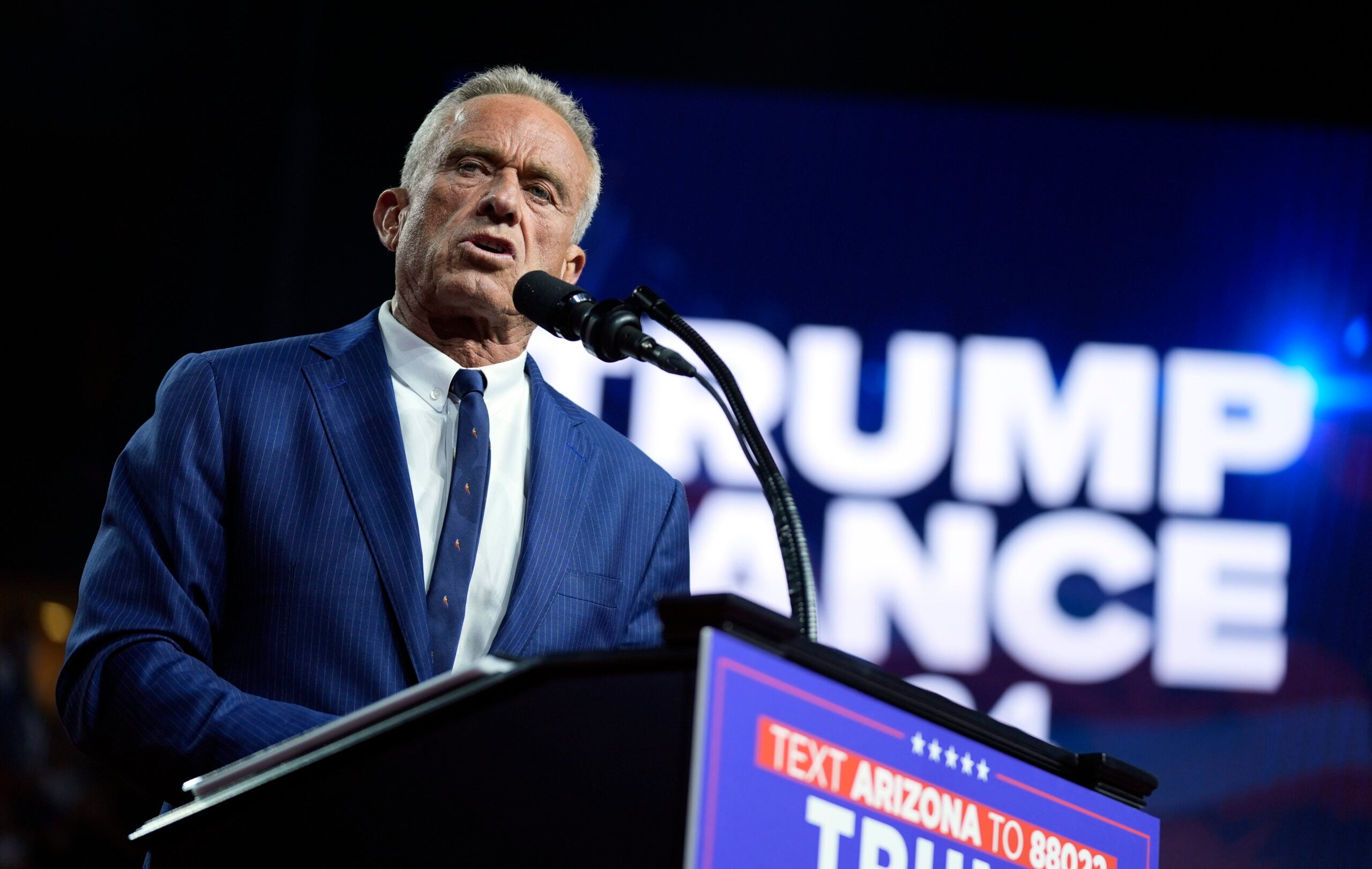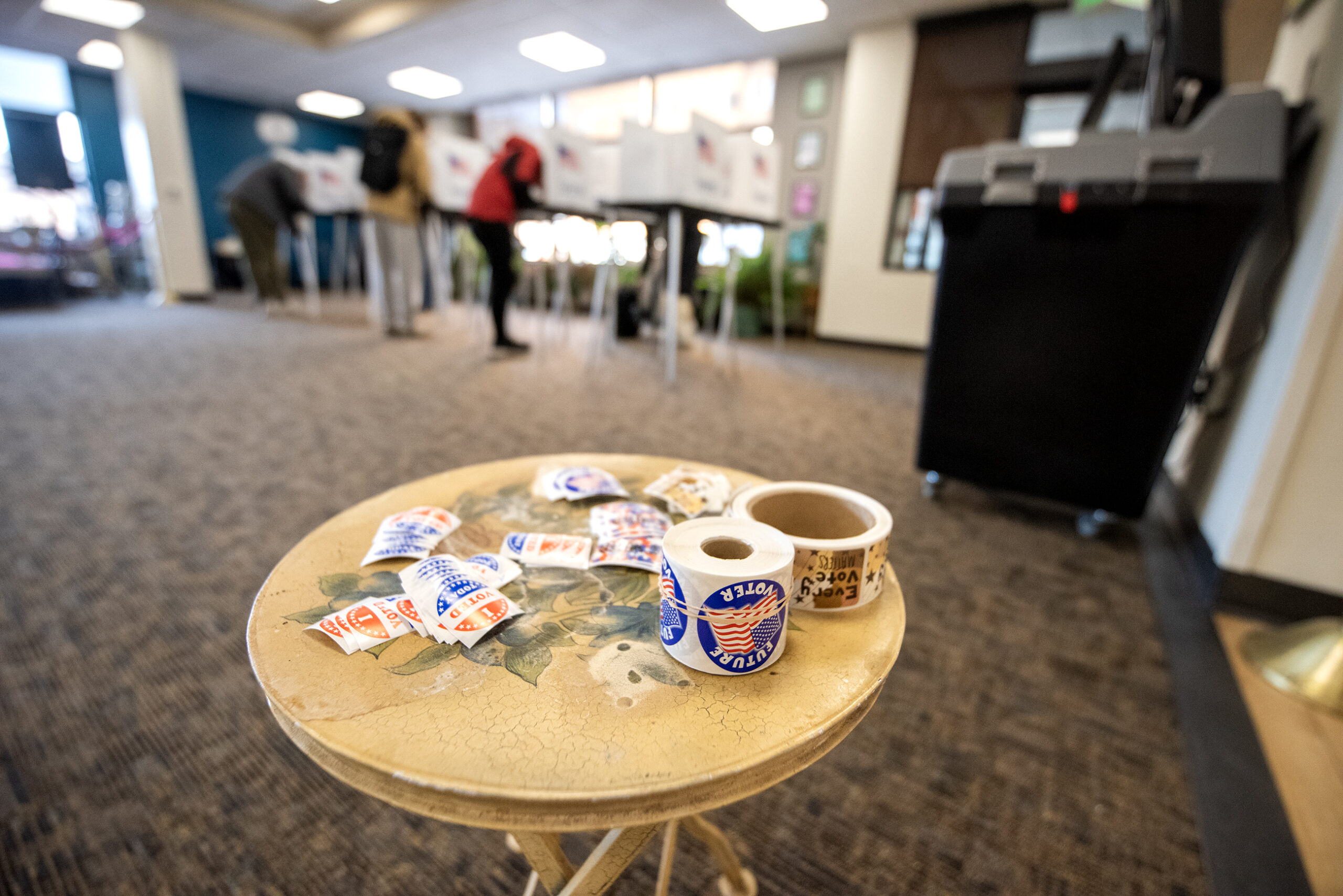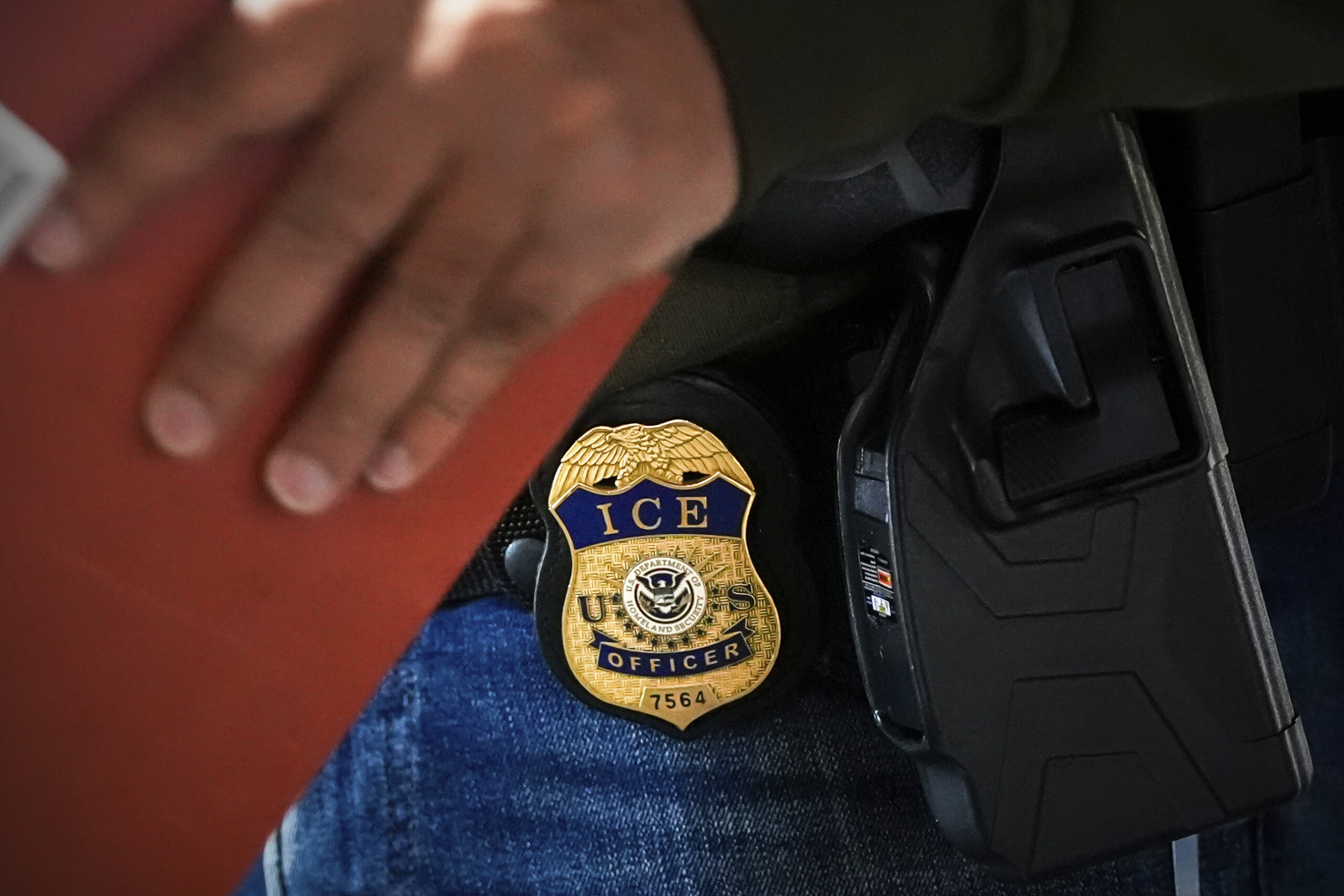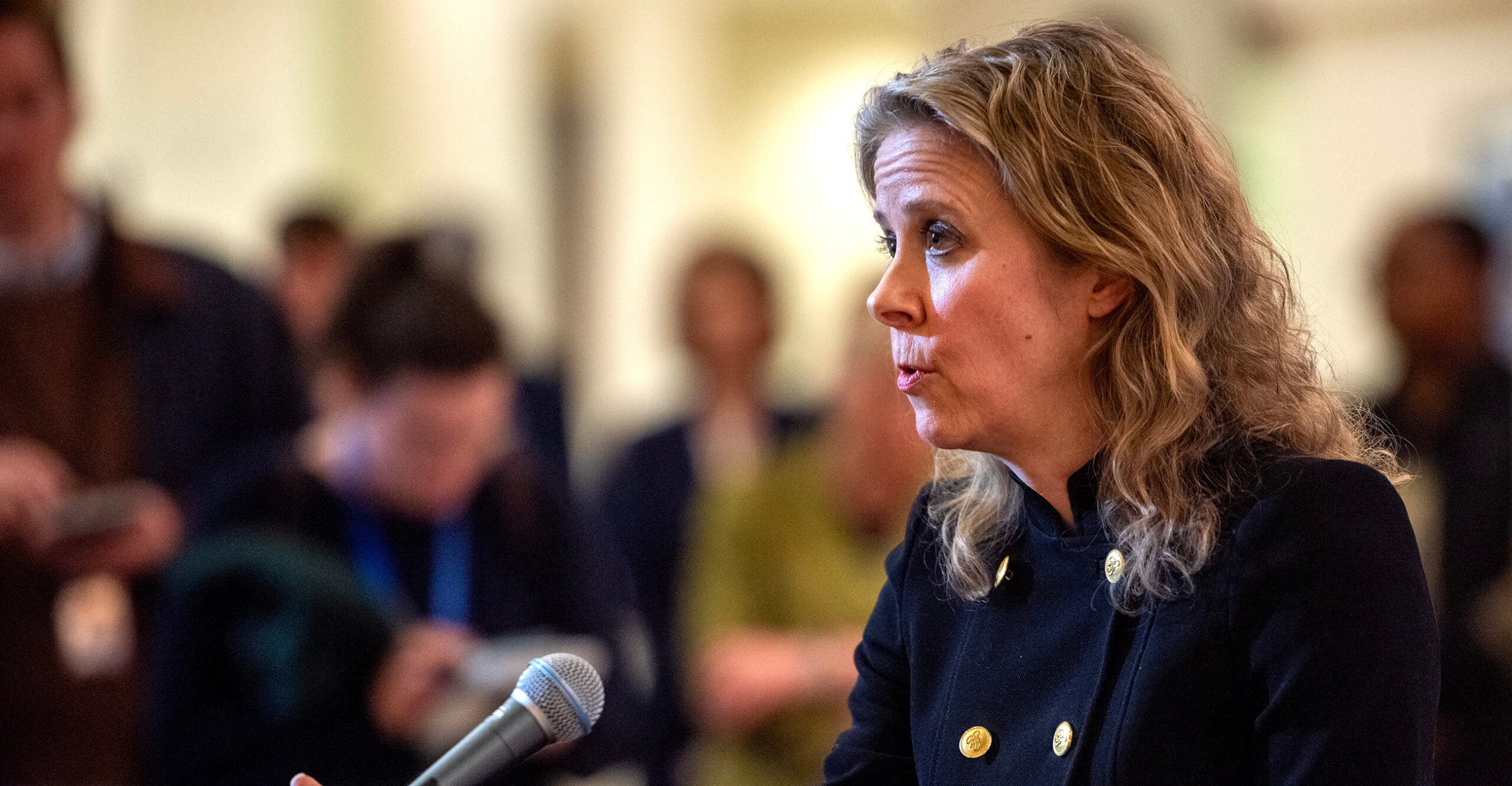The Wisconsin Supreme Court will decide whether Robert F. Kennedy Jr. will remain on the November ballot, bypassing the court of appeals.
The liberal-leaning court indicated it likely won’t hear oral arguments before a decision is rendered, the court announced Friday.
“The court will endeavor to issue a written decision as expeditiously as possible,” the order reads.
News with a little more humanity
WPR’s “Wisconsin Today” newsletter keeps you connected to the state you love without feeling overwhelmed. No paywall. No agenda. No corporate filter.
On Thursday, the Wisconsin Election Commission asked the Supreme Court to take up the case directly. The commission argued the case needs a fast, final resolution, since local clerks are now sending out absentee ballots with Kennedy’s name.
By 7:30 a.m. Thursday, more than 340,000 ballots had already been sent out, according to the WEC filing.
Justice Rebecca Bradley issued the dissenting opinion. Chief Justice Annette Ziegler joined the dissent.
“The members of the majority do not follow their ostensible ‘rule’ regarding so-called ‘premature’ petitions with any consistency,” Bradley wrote.
“Process matters,” Bradley continued. “The members of the majority sometimes enforce a rule against ‘premature petitions’ but sometimes they don’t, without disclosing any standards by which they will choose whether to apply it.”
Kennedy’s attorney, Joseph Bungi, said Friday the Supreme Court is at a great disadvantage.
“Usually, when a case comes before this Court the issues have crystallized—through the court of appeal’s decision and the appellant’s petition for review,” Bungi wrote in a motion requesting an oral argument.
“The case has moved quickly. And from the briefing, there are a lot of outstanding questions and points that this Court is (and will be) wrestling with,” Bungi continued. “Those questions should not be answered without the insights and input of counsel at oral argument.”
Bungi told the court he is available this weekend to give his argument.
In an order Friday evening, the court rejected this request, instead ordering the Kennedy campaign to file a written argument not exceeding 20 pages by 12 p.m. Saturday.
Kennedy suspended his campaign in August and endorsed Donald Trump. He has been trying to get his name off ballots in key battleground states like Wisconsin.
A Dane County judge ruled Monday that Kennedy must stay on the ballot. That ruling upheld an earlier decision by the elections commission, which said state law mandates that approved candidates can’t get off the ballot unless they die.
A Waukesha-based state appeals court agreed Wednesday to hear a lawsuit seeking to remove his name. The Supreme Court’s order Friday effectively took over that case.
Kennedy has proposed local clerks cover his name on the ballot with stickers.
In its filing, the Wisconsin Elections Commission said that solution would ignore state law and force clerks to spend “tens of thousands of hours” creating and affixing stickers, causing a “logistical nightmare,” that could threaten the accuracy of the election results.
Editor’s note: The story has been updated to included Kennedy’s attorney.
Wisconsin Public Radio, © Copyright 2026, Board of Regents of the University of Wisconsin System and Wisconsin Educational Communications Board.







